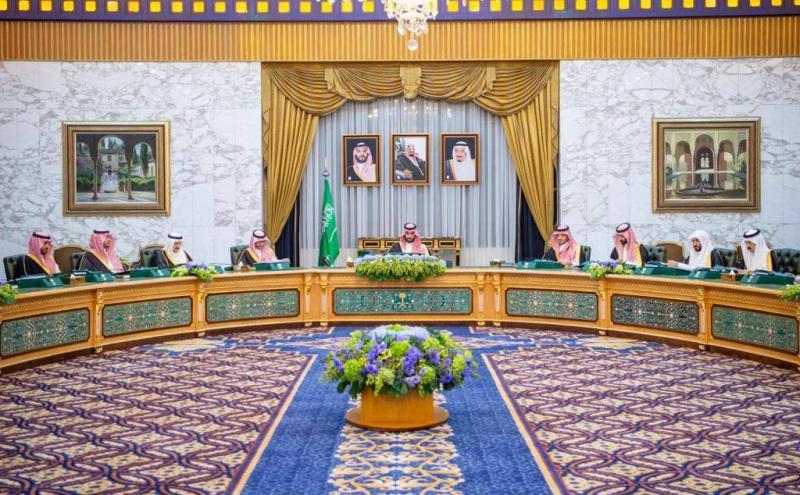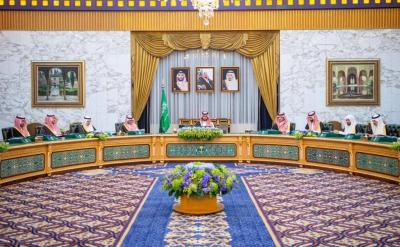The Saudi Council of Ministers followed up on Tuesday with the diplomatic efforts undertaken by the Kingdom on various fronts to urge the international community to fulfill its responsibilities in halting military operations in Gaza, enabling relief organizations to deliver urgent and necessary humanitarian assistance to civilians, in addition to finding a fair and comprehensive solution that "meets the aspirations of the dear Palestinian people."
This was discussed during a session chaired by Crown Prince Mohammed bin Salman bin Abdulaziz, Prime Minister, in Riyadh, where the council was briefed on the details of a phone call received by the Crown Prince from the U.S. President, during which the Saudi position regarding developments in Gaza was reaffirmed.
The council reviewed the latest updates on the resumed talks in Jeddah between representatives of the Sudanese Armed Forces and the Rapid Support Forces, facilitated by Saudi Arabia and the United States in partnership with the African Union and the Intergovernmental Authority on Development (IGAD), expressing hope that this dialogue would be a positive step towards ending the conflict and achieving security and stability for Sudan and its people.
The council also touched on the significant economic events hosted by the Kingdom in recent days, praising the participation of leaders, officials, and experts from around the world at the seventh Future Investment Initiative, which resulted in the launch of investments in various sectors worth over $17 billion.
The council took and approved several measures and decisions, including the approval of two model memorandums of understanding for cooperation in the logistics and postal sectors between Saudi Arabia and other countries, and delegating the Minister of Transport and Logistics Services, or his representative, to negotiate with other countries regarding the memorandums.
It also authorized the Minister of Investment, or his representative, to sign an agreement with Mauritania on mutual encouragement and protection of investments, and with Qatar regarding projects, agreements, and memorandums of understanding for cooperation in areas such as encouraging direct investment, central banking actions, nuclear safety and radiation protection, and avoiding double taxation on income to prevent tax evasion and avoidance.
The council approved a trilateral agreement between Saudi Arabia, UNESCO, and the Regional Center for Quality and Excellence in Education regarding the renewal of the center's status as a category (two) center under the supervision of UNESCO, as well as a memorandum of understanding with Beijing for cooperation regarding Saudi Arabia's guest of honor status at the China-Arab States Expo.
The regulation of the Saudi Red Sea Authority was also approved. It was decided that the calculation of periods in all official procedures and dealings would be based on the Gregorian calendar, except where related to Islamic Sharia provisions that consider periods based on the Hijri calendar, or where there is an explicit provision to base the period on the Hijri calendar.
The council decided to reconstitute the Committee for Resolution of Disputes and Violations in Riyadh, chaired by Dr. Abdullah Al-Shahri, and including members Fhad Al-Shabeeli and Dr. Majid Al-Utaibi. The final account of the National Center for the Development of the Non-Profit Sector for a previous financial year was adopted, and a promotion to the 14th rank was approved.
The council was also briefed on several general topics listed on its agenda, including annual reports from the Saudi Data and Artificial Intelligence Authority, the Eastern Province Development Authority, and the Environment Fund, and took the necessary action regarding them.




